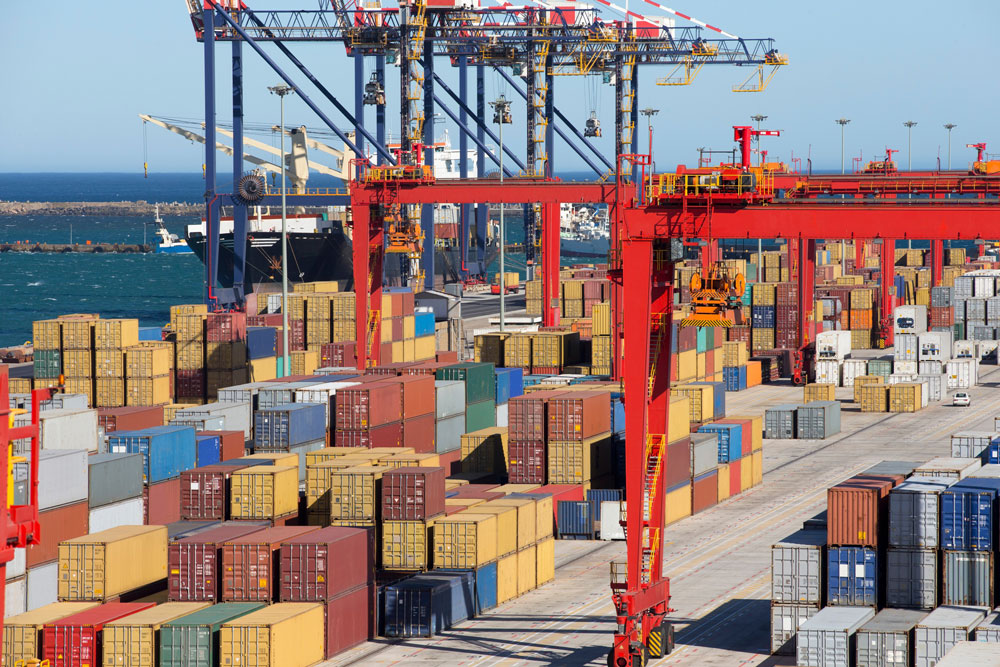Businesses need to invest in inventory management systems and automate their processes to cope with current supply chain challenges. Accurate planning of stock availability will help businesses process the loads more promptly and thus facilitatе their movements along the entire supply chain. This is what the one-stop T&L solutions provider Gopet Trans advises in the ongoing shipping crisis worldwide. According to Ognyan Duchev, head of the Sea and Air Transport Department at Gopet Trans, who coordinates the company’s activities in Bulgaria, Romania and Greece, if companies have prepared for inventory management on their local markets, Black Friday and Christmas related shopping events won’t be threatened by shortages. Although regional orders increase the prices of products to end customers, they are safer in times of crisis, Duchev believes. Traditionally, winter holidays are a peak season and orders coming in from shippers begin to increase as early as August. “Inevitably, there will be delays, shortages of goods and supplies at higher prices than in previous years,” he said.
Groupage services – a possible solution to the supply chain shortages
Groupage services are a possible solution to the supply chain shortages because splitting goods into smaller loads allows for a more reliable transport due to groupage services’ regularity. Even though these types of services are not always cost-saving, they are available in critical moments, when businesses need an urgent batch transportation solution.
“Customers also need to make a clear indication of whether the price, or the transit time is more important to them in order for the freight forwarders to offer the most appropriate solution,” Ognyan Duchev said.
Alternative routing and digital transformation
The transport crisis is stirring up the market and customers are shifting to companies offering the most efficient and innovative solutions in terms of planning and costs. And while previously this was a market advantage, it is now an essential prerequisite for success. “It is up to each company whether it takes advantage of the new situation, or not,” Ognyan Duchev said. Despite the challenges faced by the transport sector, Gopet Trans has gained new customers and partners in the last year and is investing in its relationships with them, relying on alternative transport solutions to provide timely deliveries. “In 2021, we received inquiries from many customers we had not even heard of in the previous period”, Duchev added. While Gopet Trans’s subsidiary in Romania has until recently dealt only with road and intermodal transport, this year it has included maritime transport in its portfolio of services. The high-capacity port of Constantza is its new base for goods export and import to/from Bulgaria. In addition, the company already offers a rail service for import from China to Poland and alternative routes to meet customer requirements in terms of both price and transit time.
Continuous port congestion
Currently, the port congestion situation worldwide is critical, and according to Ognyan Duchev, the crisis is likely to continue until March–April 2022, when he expects a decline in sea freight. If shipping companies invest in innovative technological solutions to effectively manage delayed containers and optimize their exchange in a given region, they could respond more adequately to the current influx. Although shipping companies’ schedules have started returning to normal, they still serve customers on a first-come, first-serve basis, and there are containers waiting for more than a month before being shipped to their final delivery point. Large ports of great commercial importance, such as those in Barcelona, Spain, and Casablanca, Morocco, transporting goods to North and South America, as well as the ports of Athens and Istanbul, which are key transport hubs to both the Far East and Europe, are still congested. Some ports have even suspended shipments to/from North and South America in September and October, damaging business relations for companies trading with these regions. According to business analysts around the globe, the problems with maritime transport will continue until 2023.

